» home » portfolio » reportage
Gangs, violence, drugs and the promise of untold riches... Britain's latest offshore investment: The Brazilian oil boom
This British-backed oil rig will bring untold new wealth to Brazil. It will also drill deeper than BP's catastrophic Deepwater Horizon and fuel the carnival of violence in the Wild West boom town of Macaé. Live's award-winning Jonathan Green reports from the troubled waters of the City of Oil
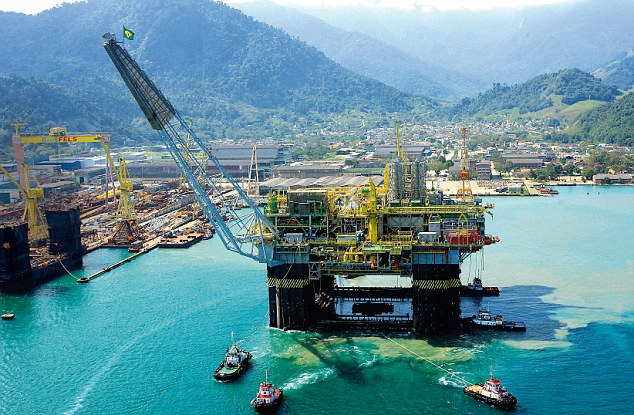 The massive P-52 oil platform in the Roncador field off the coast of Brazil. The country is poised to become one of the new superpowers in the next ten years, largely due to massive reserves of oil and gas.
The massive P-52 oil platform in the Roncador field off the coast of Brazil. The country is poised to become one of the new superpowers in the next ten years, largely due to massive reserves of oil and gas.
A split second, a half-hearted cry of warning and then they prepared to open fire. The kid in the oversized white T-shirt with the AR15 assault rifle slung around his chest slipped his finger through the trigger guard and hefted the weapon. Another, in baggy jeans, manning the roadblock to my left, suddenly produced a matt black 9mm Beretta.
His feet apart, both hands on the butt ready to absorb recoil, he levelled it at the black Volkswagen speeding towards us, a rooster tail of dust flaring behind it. Violence, which erupts with rhythmic precision here, had us trapped.
The car bearing down on us could contain rival gang members, or it could be the police.
‘Get behind the wall,’ spat Fred, my guide and interpreter. ‘Quick. Now… go!’ We ran for it, ducking for cover behind a low cinder-block wall to our right. Between us and a clutch of youths now breaking out guns was a rust-coloured road that led into the heart of the slum.
We were scrutinised and confronted the moment we set foot in the New Holland slum – or favela as they’re known in Brazil. As we advanced into forbidden territory, I noticed that there was only one way in and one way out. Just as I did, gang members came out of the shadows like wraiths.
A chromed 9mm pistol tucked into a makeshift belt around an adolescent’s waist glinted in the sunshine. Scowling, they called their commanders ahead, telling of our impending presence. This was the territory of the Amigos Dos Amigos (ADA), one of Brazil’s most powerful and ultra-violent drug gangs, who rule the country’s favelas in an undeclared civil war.
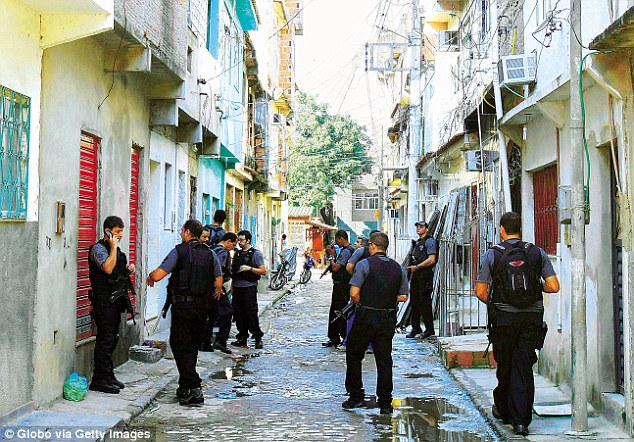 Police raid the New Holland favela in May 2010 - six people were killed
Police raid the New Holland favela in May 2010 - six people were killed
In Brazil their battles with the heavily armed and corrupt police are so violent that the drug gangs recently shot down a police helicopter. They toss grenades at armoured personnel carriers and open fire with heavy machine guns and bazookas. They control the slums as their powerbases, making millions supplying cocaine. And now they have a growing clientele of dollar-rich oil workers and executives, like those in the black car. The gangsters lowered their guns.
Situated on the coast some 110 miles north-east of Rio, Macaé is Brazil’s self-proclaimed City of Oil – the capital of its booming oil industry. At the city gates stands a giant monument to oil, a drill several hundred feet tall.Once an obscure fishing village, Macaé has exploded as the heart of the Brazilian oil bonanza.
The country is poised to become one of the new superpowers in the next ten years, largely due to massive reserves of oil and gas, which are being developed with the help of British companies. In Macaé, a steady tide of humanity flows into town. It’s just like the old Wild West: roughnecks, roustabouts, gangsters and prostitutes all looking for a chance to get rich in a new El Dorado.
Some 4,500 companies connected to oil have set up in town in the past ten years, and the number can only rise. During the day, twin-turbine helicopters costing $6,000 an hour roar over the favelas out to the 500 oil platforms and rigs offshore. It’s said that bullets from the daily gunfights in the favela have hit oil-company helicopters ferrying oil workers to and from the rigs.
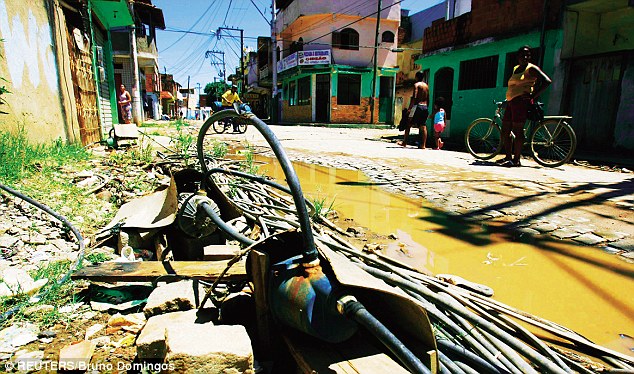 A water pump in the favela, taking water from a polluted river. Most migrants end up in the favelas, which have doubled in size in the past few years
A water pump in the favela, taking water from a polluted river. Most migrants end up in the favelas, which have doubled in size in the past few yearsAbout 130 miles from where we stand, deep below the shimmering turquoise of the Atlantic Ocean, are some of the world’s richest and most bountiful oilfields. The UK-based BG Group, in partnership with Brazilian oil company Petrobras, hit the jackpot in 2007 when it discovered the Tupi oilfield, the Western Hemisphere’s largest oil discovery in 30 years. It now owns a 25 per cent share of all the fields in the Santos Basin region.
Production started earlier this month in an area some analysts believe could contain up to eight billion barrels of oil. It’s a strike that has caused a surge of national pride, encouraged by the country’s newly elected female president Dilma Rousseff, and has made Brazil one of the top ten oil exporters in the world. BP is cashing in on the bonanza too. It has just bought access to reserves for $7 billion from U.S.-based Devon Energy.
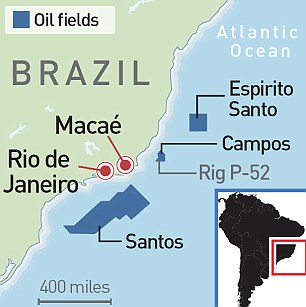 But the problem with these oilfields is that they’re the deepest in the world, at up to 25,000ft below sea level (6,600ft of water, then over 16,000ft of salt, sand and rock) – far deeper than Deepwater Horizon was drilling when it caused the biggest oil spill in history in the Gulf of Mexico. Undeterred, the British government has invested in the riskiest offshore oil operation in the world.
But the problem with these oilfields is that they’re the deepest in the world, at up to 25,000ft below sea level (6,600ft of water, then over 16,000ft of salt, sand and rock) – far deeper than Deepwater Horizon was drilling when it caused the biggest oil spill in history in the Gulf of Mexico. Undeterred, the British government has invested in the riskiest offshore oil operation in the world.
The P-52 oil platform, a leviathan, already drilling in 5,900ft of water in the Roncador field in the Campos Basin, was developed with loans to Petrobras underwritten by UK trade ministers through the Export Credits Guarantee Department. A host of British companies including Rolls-Royce have invested in the platform.
To get to the black gold, the oil companies need to penetrate reservoirs where temperatures reach as high as 200°C, increasing the risk of a disastrous blowout.
‘This project is incredibly risky,’ says Adam Ma’anit, a research analyst for Platform, a corporate watchdog. ‘What they are doing is hairy stuff. At those depths equipment failure is catastrophic.’
Some oil experts claim that if there is to be another disaster like the Gulf of Mexico spill, it will be here in Brazil.
But as the oil rush explodes there is a human price to pay. Most migrants end up in the favelas, which have doubled in size in the past few years. These slums have swallowed local nature reserves and polluted local rivers. In a country plagued with gang violence, Macaé has earned the dubious honour of being the city with the highest rate of murders committed by youths.
From the favela we crossed a small, south- facing bridge into a labyrinthine area of dusty streets that looked medieval, its squat cinder-block houses bereft of glass for windows.
‘The mayor and the city have forgotten about us here,’ hissed one man in a bright red Ronaldo football top.
‘They can put the deepest pipes into the ocean here to get oil and yet they can’t even give us pipes for proper sanitation?’
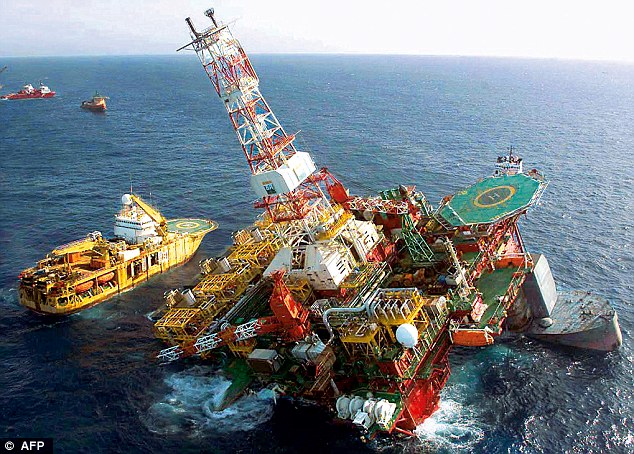 A crane ship stands by to rescue oil-rig workers from the stricken P-36 platform in 2001
A crane ship stands by to rescue oil-rig workers from the stricken P-36 platform in 2001
We moved on past open sewers in the middle of the road. Most of the residents are without drinking water. They are reduced to stealing water by sticking buckets under a broken pipe that runs into the city centre.
In Macaé I found the devastating human cost of local oil production: injured workers, widows, the growth of violent slums, fishermen losing their way of life.
‘The term “oil curse” is aptly applied when oil companies operate anywhere for any length of time,’ says Ma’anit.
Oil has driven a wedge between the rich and the poor, adds Marcel Silvano, a church outreach worker: ‘Four per cent of the money from oil is meant to go to the community, but we see nothing here. With no jobs the youngsters join the gangs and turn to drug dealing.’
‘There are two cities here,’ remarks Danilo Funke, president of the Commission for Human Rights in Macaé.
‘On one side there’s a very rich city with a good quality of life. On the other side you have total poverty. It’s all driven by oil. If the money from the royalties of the oil was used well it would be a blessing.’
He points to corrupt local politicians.
‘But with human beings they always turn it into a curse. There’s a saying in town. The last man hanged in Brazil was in Macaé 100 years ago. He said that the city would be cursed from then on.’
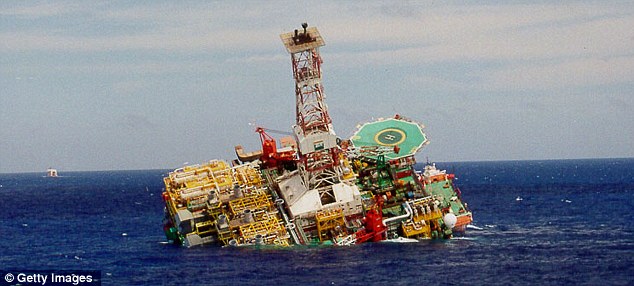 Hours later the stricken P-36 sank into the ocean
Hours later the stricken P-36 sank into the oceanThe first blast rocked the massive structure with a thunderous boom, sending shockwaves all the way to the ocean floor. Metal warped and creaked, as the power of the explosion raced up the starboard aft column. What was then, in 2001, the biggest oil platform in the world, the P-36, began to list at five degrees.
Josevaldo Souza, 38, a spry and muscular father of two, part of the rig’s safety team, vaulted down the rig’s stair system determined to find the source of the explosion. At first he didn’t detect the deadly gas that was seeping into the column – a highly volatile mix primed to blow.
As a Petrobras engineer, Josevaldo looked to have guaranteed a safe future for himself and his young wife Marilena, childhood sweethearts since 17, and their two young children Filipe and Alice. He’d worked hard since his teens to join Brazil’s biggest, state-owned oil company, and thanks to the country’s massive oil boom could hope to enjoy a job for life, health benefits and a secure existence above Brazil’s crushing poverty line.
Josevaldo had confided to his wife, however, that he had concerns over the safety of the platform.
‘One of the valves in the legs is not working,’ he told her. ‘There are no fire extinguishers.’
He also told her that, crucially, a tank that contained run-off gases had been placed in the leg of the structure, a potentially fatal oversight.
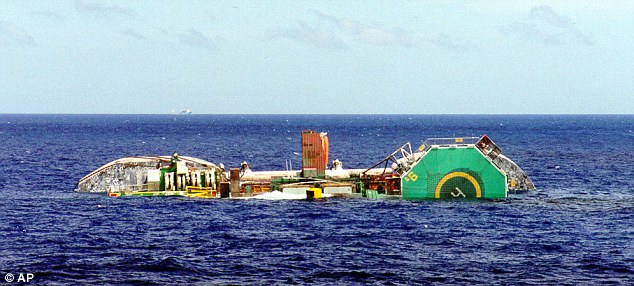 The explosion killed 11 workers
The explosion killed 11 workers
But when Josevaldo complained to his bosses as operations began that it was unsafe, his concerns were brushed off.
‘In order to fix it they had to stop production,’ says Marilena. ‘But they never do that. They have to keep production up at all costs.’
Even though another rig in the Campos Basin had exploded in a blowout in 1984, killing 42.
As Josevaldo ran down the stairs with water to douse the flames, a second explosion shook the platform. Josevaldo was killed, along with ten other oil workers. One of his colleagues was rescued, but 98 per cent of his body was burned. He died a few days later in hospital. Soon afterwards, the rig collapsed into the ocean.
It was replaced in 2007 with the giant P-52, drilling at even deeper depths, with the backing of British financial aid.
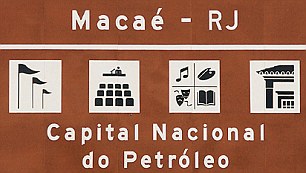
‘When I saw the Gulf of Mexico disaster on the television, what happened with Deepwater Horizon was like a flashback,’ says Marilena.
‘Eleven people also died there, but no one talks about the loss of human life.’
Now Marilena campaigns for greater safety on oil rigs.
Graca Alcantara, a smartly dressed woman in her forties who works for the oil workers’ union, Sindipetro-NF, claims that accidents are being under-reported by oil companies so as not to jeopardise their reputations with investors and the regulatory authorities.She says Petrobras has reported 258 accidents while other companies have reported 79.
‘There are 45,000 people working offshore here. How can there only be 79 accidents by all the other companies?’
In the reception room at her offices, the union’s newsletter carries the headline ‘September Month of Death’. It details four new oil-industry deaths in the past month alone.
With so many people flooding into Macaé it’s easy to replace workers; human labour is an easy-to-find commodity.
‘It’s so much easier to fire a worker and hire a new one,’ she says. ‘But people are frightened to talk.’
Is there active intimidation?
‘For sure,’ she claims.
Dimas Francisco, a wiry 45-year-old, was drawn to Macaé by the stories of endless wealth and work on the rigs, which would pay a lot more than his job as a soldier. At one time he had a large apartment and could treat his young family (three children aged one, four and six) to clothes and other luxuries from the fat pay cheques of 5,000 reals (£2,000) a month he made on the oil rigs, a huge amount of money in Brazil.
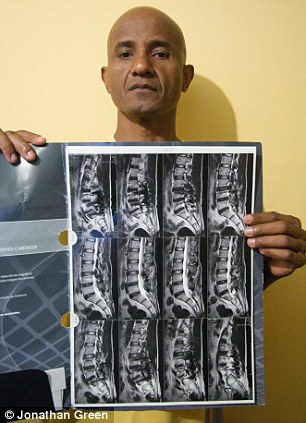
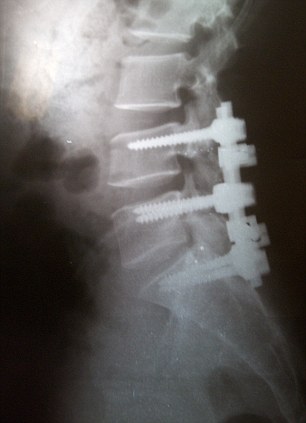 Dimas Francisco, 45, with X-rays of the steel plates and screws holding his spine together
Dimas Francisco, 45, with X-rays of the steel plates and screws holding his spine togetherThe subcontractors he worked for, using heavy seismic equipment, pressured him to work longer and longer hours as other companies began to make multimillion-dollar oil strikes. He started to work round the clock, for more money, but to the point of exhaustion. It was then that a 400kg piece of equipment carried by him and three other men slipped out of their hands.
Instinctively, he attempted to catch it. Immediately, a searing pain shot up his back. By 4pm he couldn’t move. His managers offered him painkillers and tried to force him back to work. He obliged, but eventually the pain became unbearable.
‘My manager told me that I would be fired if I insisted on seeing a doctor on my own,’ he says.
Instead he headed to Rio, where a doctor told him that unless he underwent immediate surgery he would be a paraplegic. Today, in his cramped one-bedroom apartment, he holds up the X-rays that show the steel plates and six screws that hold his spine together.
‘Everyone says that this is the capital of oil, but that’s a lie,’ he spits. ‘No one wants to take responsibility when you are injured.’
The company he worked for refuses to list his injury as a work accident and won’t pay him compensation, even though the Brazilian health service says it should.
A three-hour drive north of Macaé, in Campos, another city that has exploded in the oil boom, Mauricio Pereira de Mederros greets us, lying in his bed in a flat at the top of a high-rise. He’s a paraplegic. He signed up with one of the subcontracted companies and after a brief written test was flown out to a rig. Three months later, the crew was boring a new hole when a 1,000kg pipe tumbled from a crane.
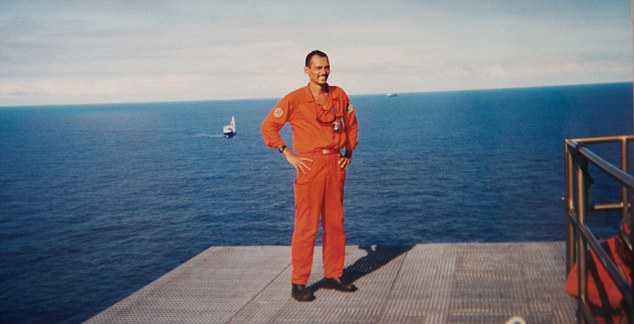 Josevaldo Souza, who was killed by the explosion on the P-36 platform
Josevaldo Souza, who was killed by the explosion on the P-36 platform
Mauricio fell between pipe sections, which subsequently rolled over him and bent him in half like a hinge. He woke up from a 21-day coma to be told that he’d never walk again.
‘I was always hearing about accidents, but I never thought it would happen to me,’ he says. ‘You’re always hearing about someone who lost an eye because of chemicals, or someone breaking an arm, or getting burned, and they never get reported.’
He was paid significant compensation, but the money has now been spent. Another man with a serious spinal injury says he’s still fighting for compensation. He claims that work teams were given financial bonuses if they had clean safety records, which meant there was pressure on workers not to report accidents.
‘They try to avoid those numbers as much as possible,’ he says. ‘I gave my blood to that company and now I am ruined.’
So while the oil bonanza bubbles away and the country gets richer, the oil dream certainly doesn’t benefit everyone. Fishermen, too, piloting their tiny trawlers though the wake of giant oil supply boats, complain that steel junk from the oil rigs and ships shreds their nets and damages their business, while the thought of an oil spill like the one in the Gulf of Mexico fills them with dread.
Back in the favela Regina, 34, keeps her four children safely inside at night as gunfire crackles outside. Like her neighbours she moved here from the north-east of
Brazil, drawn by what she says is the ‘propaganda’ of the oil industry and the false promise of jobs.
‘I was unemployed here for four years,’ she says.
Having sold everything she had for the oil dream she couldn’t move back to her hometown and found herself stuck. Like most, she realised that jobs in the ‘oil chain’ mean you have to have training, which requires money, which most don’t have.
Just recently, though, she did get a job as a housekeeper for an oil executive. But many of the thousands who are drawn to Macaé from the poverty-ridden rural areas of Brazil are not so lucky.
BG Group says that it’s completing a ‘comprehensive social performance strategy’ for Brazil.
‘Naturally tax and royalties will be paid once commercial production begins,’ says group communications manager Neil Burrows.
‘We have also made a commitment to work to ensure that the neighbouring communities benefit from our presence on an enduring basis.’
At the moment, though, those in the favelas live in a world apart.
As my guide says, ‘The only contact people here have with the city is when the police come in every Friday night to demand their cut from the drug dealers. If they refuse there’s a gun battle.’
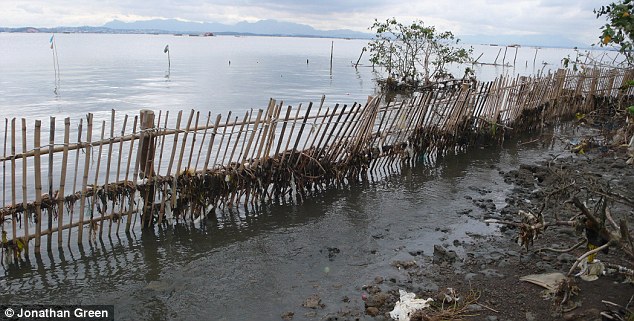 Evidence of oil pollution on the shoreline
Evidence of oil pollution on the shorelineBullet-riddled corpses get dumped in the river, floating past the gated housing estate of Ilhas De Caireras, home to oil executives and politicians, on out to sea.
When I’m there the favela is festooned with posters for the mayoral and city elections, the bleached white grins of local officials smiling down on the poverty. Posters all over town from the mayor declare, ‘We will show you where the royalties from the oil are going.’
But Marcel Silvano sneers, ‘They are building industrial poverty here. The bigger the favelas, the more people they can encourage to vote for them. ’
According to Danilo Funke, the true power brokers of Macaé are now the drug dealers in the favelas. In January the police entered the Malvinas favela and shot dead three drug dealers. An 18-year-old pregnant girl was shot dead too. The favela commanders were furious. On a Monday at 1pm they reputedly ordered every business in Macaé closed on threat of violent reprisal. They set fire to buses and ordered their men to swarm the downtown area, where they quickly emptied the streets as they fired pistols and small arms in the air.
‘It was to show their power,’ says Funke.
The prospect of a major accident and spill off the coast here is an ever-present threat. In 2000 a leaking pipe in Guanabara Bay destroyed a nature reserve. We visited the area to find a stinking black mud, gnarled and dead mangroves in a landscape that is only now showing glimmers of life ten years later. But there’s an even greater danger on land, as more
and more people are drawn to the Wild West-style world that oil brings with it. While nature can recover, human lives, once wrecked or lost, don’t.
‘There is going to be a huge disaster in Macaé,’ says Funke. ‘But this time it’s going to be a human disaster.’
Words and pictures by Jonathan Green